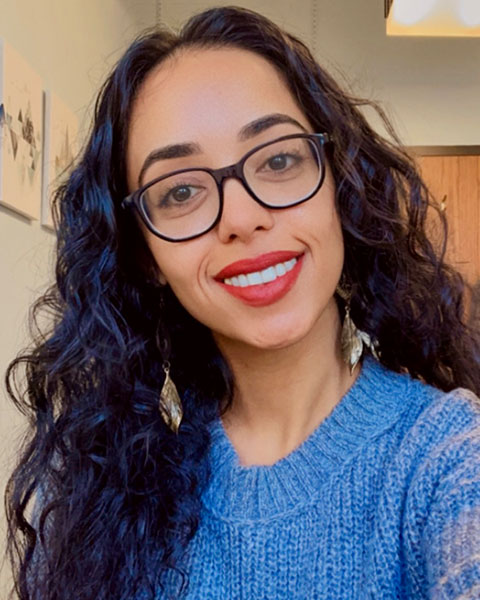Symposia
Trauma and Stressor Related Disorders and Disasters
5 - (SYM 12) Using Community-partnered and Task-shifting Approaches to Improve Access to Trauma Treatment in the Caribbean: A Multi-cohort Study
.jpg)
Anu Asnaani, Ph.D. (she/her/hers)
Associate Professor
University of Utah
Salt Lake City, Utah, United States- MG
Manuel Gutierrez Chavez, M.S. (he/him/his)
Graduate student
The University of Utah
Salt Lake City, Utah, United States 
Kiran Kaur, M.S. (she/her/hers)
Doctoral Candidate
University of Utah
Salt Lake City, Utah, United States- BF
Brooke Franklin, B.S.
Clinical Psychology PhD Student
The University of Utah
Salt Lake CIty, Utah, United States - SC
Su-Anne R. Charlery White, Ph.D., MPH (she/her/hers)
Director/Founder
HERStoire Collective
Castries, Castries, Saint Lucia
Speaker(s)
Co-author(s)
Despite high rates of reported trauma in the Caribbean, there continues to be limited training infrastructure for trauma-related treatment services for providers in this region (Asnaani et al., 2023). This ongoing inequity in trauma resources and limited number of front-line providers trained to recognize and address trauma-related psychological sequelae has caused significant interpersonal dysfunction, high rates of school drop-out/unemployment, and immense health costs in this region. This presentation will address this disparity between high trauma exposure and sparse trauma-related resources in this global setting by describing our team’s community-engaged processes that have facilitated collaborations with various local agencies and stakeholders to increase service delivery capacity. We will discuss three completed training cohorts of front-line providers (e.g., advocates, school counselors, nurses) serving the needs of women, children, and LGBTQIA+ trauma survivors over the past five years in the region, with a new workshop that will train providers from six non-governmental, governmental and advocacy organizations in Saint Lucia confirmed for April 2024. Pre-post analyses across completed cohorts (C1: 41 participants; C2: 46 participants; and C3: 75 participants) have shown significant improvement in knowledge gained about trauma and its effective treatments (ps < 0.05-0.001), high perceived helpfulness of the trainings (C1-3: 83-90% of providers giving highest possible rating), and significant utilization of skills (C2: 97% of providers using at least one or more skills taught at the original training at 6-month follow-up; C3: 80% reported at post-training that they planned to use the skills taught). We will present additional pre-post and follow-up data on our latest training cohort, along with a detailed account of the logistics (particularly from afar), implementation (including practice monitoring strategies), challenges (both on the ground and during remote follow-up), and benefits (including at the policy/legislative level as they impact regional health budgets) of engaging in a multi-year research-community-advocacy partnership. We will highlight how such a partnership can be leveraged to increase access to effective treatments for trauma-related psychopathology and utilized to bridge significant gaps in mental health infrastructure in a low health-resourced but culturally rich environment, which has high relevance to many communities in the United States and globally.

.png)
